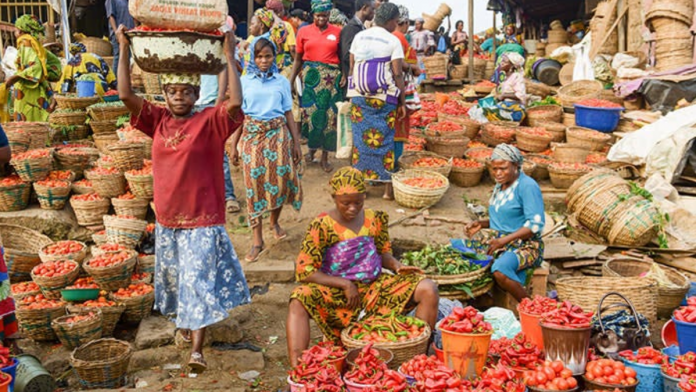News in brief: Headline inflation in Nigeria reached 25.80% in August 2023, the highest in nearly 18 years, primarily driven by increased food (29%) and transportation costs (23%). This rising inflation is causing significant economic challenges for both individuals and businesses, with staple food prices surging and fears of job losses and economic hardship.
Nigeria’s headline inflation surged to 25.80% in August 2023, the highest level since September 2005, according to the National Bureau of Statistics (NBS). The rise in inflation was driven by higher food and transportation costs.
Food inflation rose to 29.34%, up from 23.12% in the same month last year. The increase in cost of food was due to higher prices for oil and fat, bread and cereals, fish, fruit, meat, vegetables, and potatoes.
Meanwhile, transportation inflation also rose to 23.20% from 20.67% in the same month last year. The increase in transportation costs was due to higher prices for passenger transport by air and road, vehicle parts, and maintenance of personal transport equipment.
The rise in inflation is a major concern for the Nigerian government and the central bank. The central bank has raised interest rates in an effort to curb inflation, although, it has had no clear effect on the economic indicator.
Nigerians are bearing the brunt of inflation as it has had significant impact across the nation. The cost of living is rising, with many struggling to make ends meet.
The price of rice, Nigeria’s staple food, has risen sharply in recent months. For example, it rose by more than 7% between June and July in 2023 and in year-on-year terms, it was at over 39%. Maize, another essential commodity due to its importance in feeding both humans and poultry birds, rose by up to 69% year-on-year in July 2023.
The rise in inflation is also having a negative impact on several businesses including rice mills and poultry farms. Businesses are facing higher costs for inputs and labor, and sales are slowing down. There are fears that this may lead to job losses and further economic hardship.



